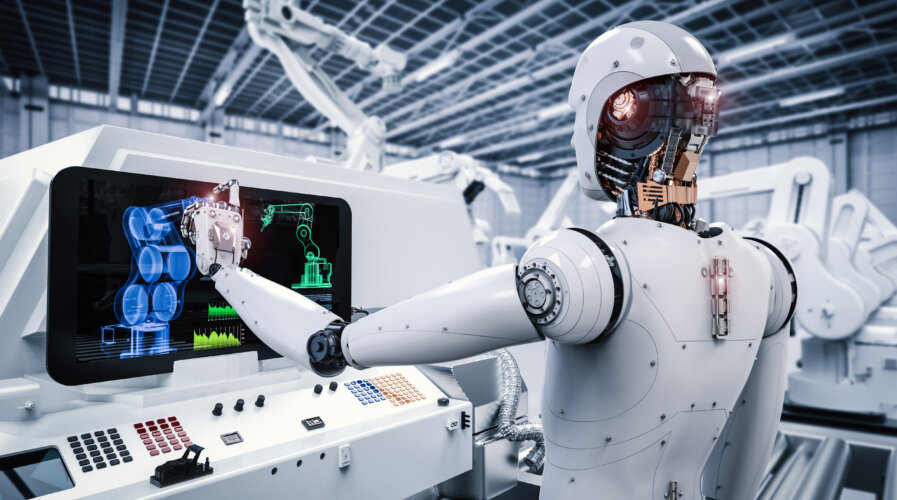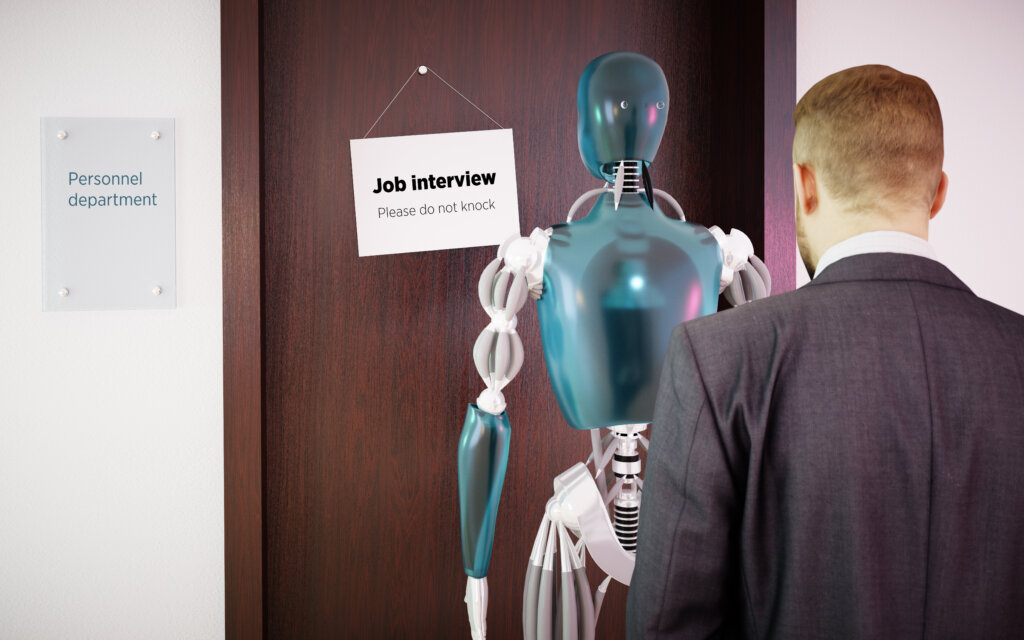
(Source – Shutterstock)
Top 5 jobs that AI could replace in the future
|
Getting your Trinity Audio player ready... |
- There is a growing concern among many workers that AI will eventually replace their jobs – considering what the ChatGPT hype has already done.
As AI continues to advance and become increasingly sophisticated, there is a growing concern among many workers that AI will eventually replace their jobs – considering what the ChatGPT hype has achieved. While this is a valid concern, it is essential to consider both the potential benefits and drawbacks of AI and how it may affect the workforce in the future.
On the one hand, AI has the potential to automate many repetitive and manual tasks, freeing up human workers to focus on higher-level and more creative tasks. This potential can increase productivity and efficiency, allowing companies to compete more effectively in the global marketplace.
However, there is also a downside to the increasing use of AI in the workforce. Many workers may find themselves replaced by AI systems, leading to widespread unemployment and a declining standard of living. The World Economic Forum estimated that AI will replace some 85 million jobs by 2025.
The unequal distribution of the benefits of AI could also exacerbate existing economic and social inequalities, mainly if workers in low-skilled jobs are most vulnerable to replacement. People with graduate degrees fear losing their jobs due to AI development. About 68.5% fear being replaced by AI, compared to 55% of other respondents.
This article will examine the top 5 job positions that have the potential to be replaced by AI soon. It will also explore why these specific jobs are vulnerable to automation and how it may impact the workforce.
Writers
As a writer, it’s hard to admit. The rise of AI technologies such as ChatGPT may impact various media jobs involving content creation, such as advertising, journalism, technical writing, and more. AI’s ability to read, write, and understand text-based data has led to the development of automated content generators.
OpenAI’s ChatGPT offers the ability to create blog posts, thought leadership pieces, and storybooks in just a matter of minutes. With AI technologies like ChatGPT continually pushing the limits of AI writing, some experts predict that the media industry may become heavily automated in the future.

(Source – Shutterstock)
There are even suggestions that ChatGPT may be able to perform tasks like reporting and writing more efficiently than humans. However, when asked about AI taking over a writer’s job, ChatGPT stated:
“It is unlikely that AI will completely replace human journalists in the near future. Human journalists bring unique qualities such as empathy, creativity, and cultural understanding to their work, which AI systems currently lack. Additionally, journalism requires complex critical thinking and decision making, skills that are still beyond the current capabilities of AI systems. Nevertheless, as AI continues to advance, it is possible that the role of human journalists may change and some tasks may be automated, but they will still likely play a significant role in the journalism field.”
So…let’s take an AI’s word for it.
Customer service representatives
The use of chatbots in customer service has been on the rise, with many websites already utilizing them to answer customer questions, often with human support for more complex inquiries. However, with the recent advancements in generative AI, some believe that a future without human customer service agents is approaching.
Gartner predicts that by 2027, chatbots will become the primary customer service channel for approximately a quarter of all organizations. Over the past decade, chatbots and virtual customer assistants (VCAs) have become essential to a service organization’s strategy. Chatbots can enhance the customer experience and generate positive emotions at a lower cost than human interactions when adequately designed.
As companies embrace generative AI chatbots like ChatGPT and other related technologies, some question whether human operators will become obsolete.
Teachers
Before the “AI takeover” buzz, students often relied on sources like Google and YouTube for information that was easier to understand than what they were taught in school. Some even claimed that these sources provided better explanations than their teachers.
With the advent of ChatGPT, teachers are concerned that students might use it to “cheat” on homework or find relevant information. While ChatGPT currently has some limitations regarding accuracy and knowledge, proper training can improve these limitations. When trained effectively, ChatGPT has the potential even to teach classes.
Financial analysts
The financial industry relies heavily on data gathering, categorization, and analysis, which can be time-consuming and prone to errors. AI can automate many financial tasks, such as risk analysis, portfolio management, and fraud detection, improving efficiency and decision-making. AI algorithms can process large amounts of data faster and more accurately than humans, enabling faster financial predictions.

Source – Shutterstock
Jobs in the financial sector, such as financial analysts and personal financial advisors, that involve significant amounts of numerical data manipulation may be impacted by AI’s ability to identify market trends, evaluate portfolio performance, and forecast better investment mixes using various forms of data.
Security guards
It is believed that with advancements in technology, such as facial recognition and human pattern recognition, AI will replace the roles of traditional security personnel in protecting homes and businesses. AI can monitor potential threats and even predict movements, increasing efficiency in security.
Solutions like G4S’s Digital Guard can screen video footage for illegal activity and address staffing shortages in the security sector. As AI eliminates the need for overtime pay and covering for absent guards, more businesses and families will likely opt for technological solutions for their security needs.
For the future of work to be maximized with benefits and minimized with risks from AI, policymakers and companies must collaborate and manage the transition to an AI-based economy responsibly and fairly.
READ MORE
- Safer Automation: How Sophic and Firmus Succeeded in Malaysia with MDEC’s Support
- Privilege granted, not gained: Intelligent authorization for enhanced infrastructure productivity
- Low-Code produces the Proof-of-Possibilities
- New Wearables Enable Staff to Work Faster and Safer
- Experts weigh in on Oracle’s departure from adland


